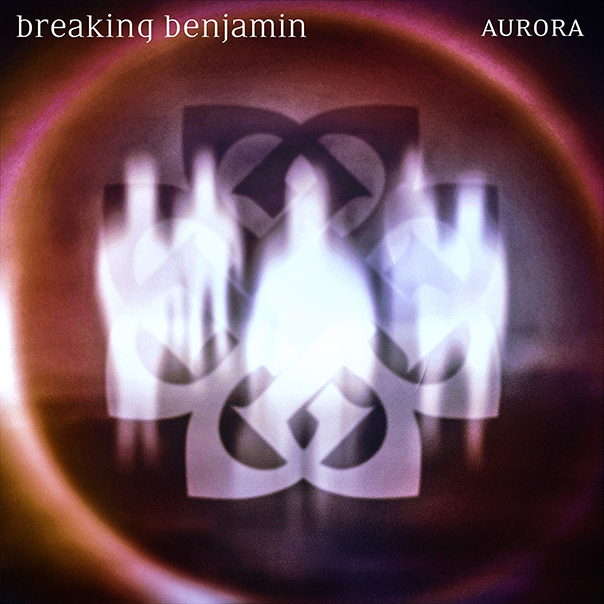ALBUM REVIEW: Breaking Benjamin reimagines the past on acoustic ‘Aurora’

Pennsylvania rockers Breaking Benjamin looked to flip the script ahead of the release of their seventh album, Aurora. The band tapped into its ample back catalog to rework nine prior tracks, as well as penning one new tune, for an all-acoustic release. Ben Burnley and company also recruited the help of a number of guests to supply vocals, including Cold’s Scooter Water, former Flyleaf frontwoman Lacey Sturm, Underoath’s Spencer Chamberlain and RED’s Michael Barnes.
Aurora
Breaking Benjamin
Hollywood Records, Jan. 24
Aurora feels much more like a reimagined album rather than strictly an acoustic reworking. Instead of providing quiet intimacy, the songs remain powerful and heavy, even if the instrumentation may be acoustic. The low end rumble of bassist Aaron Bruch and drummer Shaun Foist remains ever-present on many of the songs, with additional flourishes provided by orchestral strings and piano accompaniment.
In many ways, the record is a nod to Breaking Benjamin’s lineage of performing in an acoustic setting on a number of tours throughout its history. Aurora provides the first opportunity for the band to really dig into its acoustic persona on record. The album kicks off with the band’s breakout hit, “So Cold,” with a dark reverberating and percussive intro that leads to a layered guitar attack that’s bolstered by a new orchestral addition. The warlike rhythm of the song make its acoustic transition very natural.
RED’s Barnes makes an appearance on “Failure,” providing vocal harmony on the heavy track. Even the song’s signature double-bass parts remain just as powerful as on the original, with soaring orchestral flourishes taking the track from the quiet layered complexity of a layered acoustic guitar intro.
“Far Away,” the album’s lone new track and best moment, arrives in the form of a duet with Cold frontman Scooter Ward. It opens with a sparse, dark piano part with Burnley and Ward trading lines on the verses before harmonizing on the chorus. The song succeeds in its intimacy. While remaining dark and brooding, it feels more vulnerable. The two singers’ voices are complementary pieces when they sing,”When the broken fall alive/ Let the light take me too/ When the waters turn to fire/ Heaven please, let me through.”
Breaking Benjamin made an interesting choice by selecting mostly heavier material to transpose to acoustic arrangements. The band left several ballads in similar forms as the original versions. “Angel’s Fall” is built on lush guitar playing and vocal melodies while “Red Cold River,” with Chamberlain on vocals, has an unexpected aggression than you’d typically find from an acoustic arrangement. The band took “Tourniquet,” one of the heaviest tracks from 2018’s Ember, and translated it without sacrificing the power of the original. The song builds to a layered attack, incorporating Burnley’s aggressive growl into the chorus.
“Dance with Devil” feels like a perfect fit to get the acoustic treatment. Burnley’s powerful vocals shine on the simple yet poignant chorus, beforetThe album continues with another pair of stripped-down rockers in “Never Again” and the dynamic “Torn in Two.”
Aurora closes with another highlight, the personal “Dear Agony.” The song features vocals from Flyleaf’s Lacey Sturm, which creates yet another interesting combination and brings a new energy to the track. The album won’t surprise longtime fans of Breaking Benjamin, but it does provide a foundation for the band to show off its formidable dynamics in new ways.
Follow writer Mike DeWald at Twitter.com/mike_dewald.
